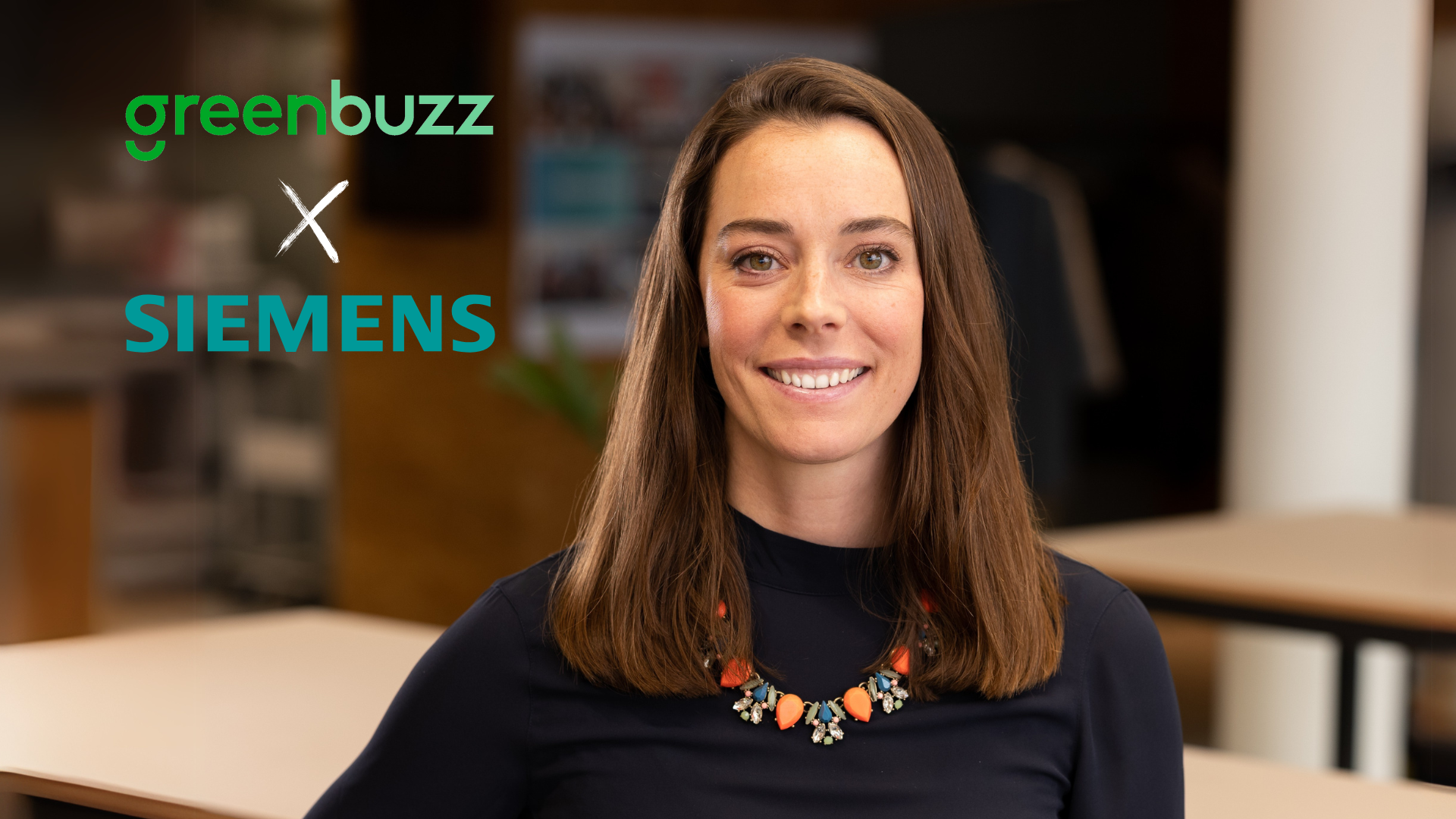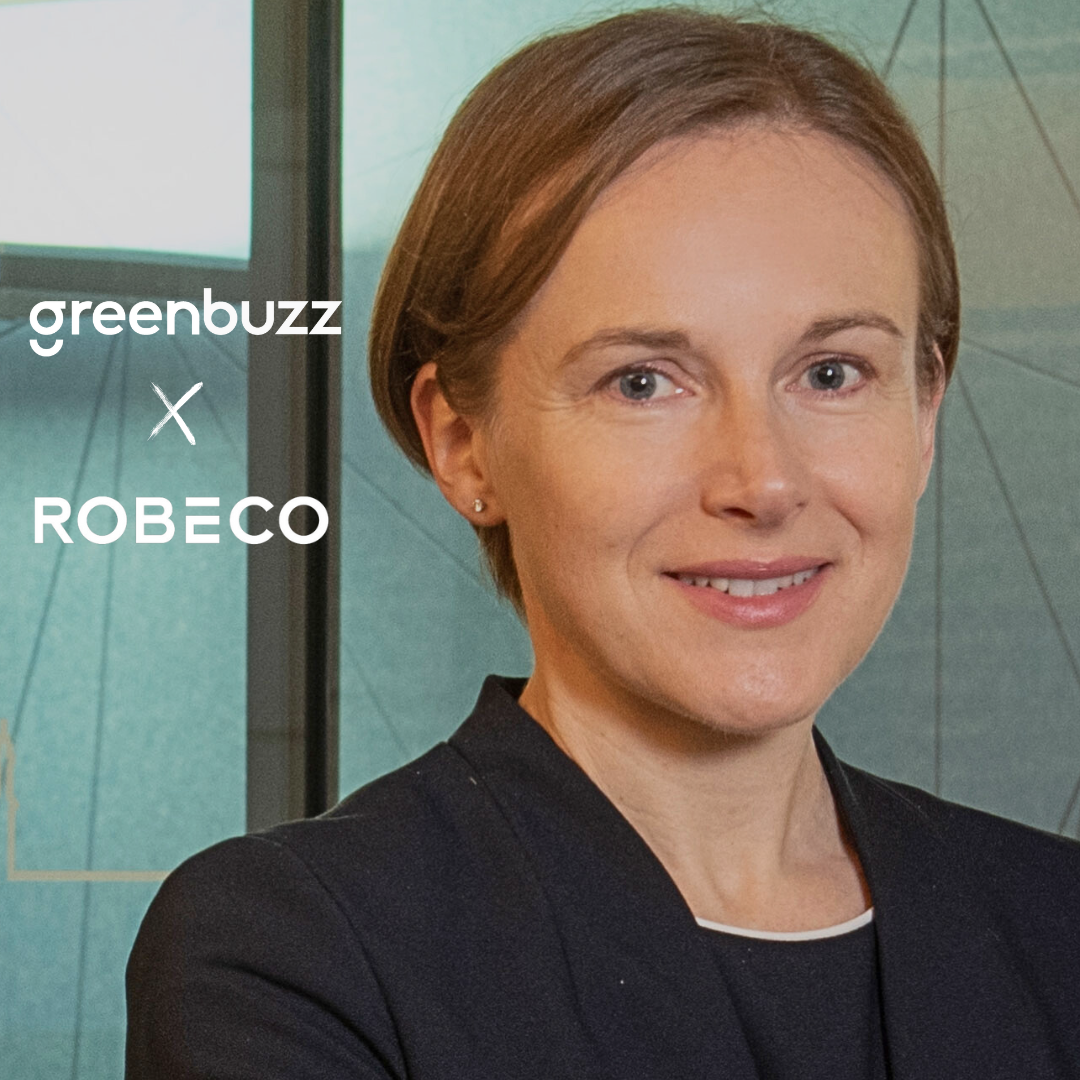We sat down for a short chat with Noemi Haag (Chief Marketing Officer) from ecoinvent, one of GreenBuzz’s important yearly partners, to find out about their sustainability journey and the company’s future plans.
GreenBuzz: What first prompted you to become a GreenBuzz partner?
Noemi Haag: We were initially drawn to GreenBuzz due to its commitment to sustainability and its vibrant community of like-minded organizations. As an organization with a mission deeply rooted in sustainability, partnering with GreenBuzz was a natural fit for us. We saw it as an opportunity to collaborate with other industry leaders, share best practices, and collectively drive positive change in the sustainability landscape. We found this to be a great opportunity for our employees to connect with like-minded people in Switzerland.
GreenBuzz: We’ve met up at a few of our events – what has been your favourite so far?
Noemi Haag: It’s always a pleasure attending GreenBuzz events, but if I had to pick a favorite, I would say the “Scope 3 Kick-Off Event—The Inescapable Giant in Reaching Net Zero” event was particularly memorable. The energy and enthusiasm from attendees, coupled with the insightful discussions and innovative solutions presented, truly showcased the potential for impactful collaboration in sustainability.
GreenBuzz: How important is sustainability to you personally and ecoinvent as a company?
Noemi Haag: I believe sustainability is important because it ensures the health and well-being of our planet for future generations by conserving resources and reducing environmental impact. Additionally, sustainable practices contribute to long-term economic growth by promoting efficiency and innovation while safeguarding ecosystems. We can support companies and individuals in achieving their sustainability goals with data-driven solutions, which makes working at ecoinvent highly motivating. At ecoinvent, sustainability is a fundamental guiding principle that informs our mission and vision as an organization. We are dedicated to enabling high-quality, scientifically grounded environmental assessments. Our work involves the publication and maintenance of the ecoinvent database. This extensive life cycle inventory database delivers dependable and transparent data on the environmental impacts of a wide range of products and services. This database is a crucial resource for companies, researchers, and policymakers who aim to evaluate the environmental impact of their activities, make informed decisions, and implement sustainable practices. As the environmental consequences of human actions become increasingly apparent, global efforts are intensifying towards achieving more sustainable ways of living. Science-based assessments play a critical role in this process by allowing individuals to evaluate and predict the outcomes of their choices. However, the reliability and validity of these assessments depend heavily on the availability of pertinent, high-quality data.

Image: ecoinvent partnered for GreenBuzz’s “Careers in Sustainability” event in February 2024
GreenBuzz: Tell us about ecoinvent’s sustainability journey over the years.
Noemi Haag: ecoinvent was established by Swiss institutions ETH, EPFL, Empa, Agroscope, and the Paul Scherrer Institute to develop a comprehensive Life Cycle Inventory (LCI) database for environmental assessments. Originating as a project within the ETH domain, ecoinvent has evolved into a globally trusted association managing environmental data for over 20 years. In the early 1990s, Swiss organizations collaborated to create public LCI datasets. Growing demand for reliable Life Cycle Assessment (LCA) data led to the ecoinvent project’s formation in the late 1990s, aiming to build a user-friendly LCI database with harmonized data. The first ecoinvent database was released in 2003, with significant updates culminating in version 2 in 2007, establishing it as the most widely used LCI database. Version 3, released in 2013, enhanced its technological foundation and methodology for global use, supporting regionalized data and ensuring consistency. In 2013, ecoinvent became an independent, not-for-profit association, continuing its mission to provide high-quality data for global environmental assessments. The expert team at ecoinvent, with diverse backgrounds in environmental science and data management, is committed to maintaining quality, transparency, and consistency in environmental data, supporting sustainable decision-making for industry stakeholders and scientific research worldwide. We have also worked closely with partners and stakeholders to promote transparency, standardization, and best practices in sustainability assessment.
GreenBuzz: What sustainability challenges does your industry need to overcome?
Noemi Haag: One of the biggest challenges is fostering the availability and quality of data to support more robust sustainability assessments and decision-making processes. We must continue to innovate and collaborate across sectors to develop scalable solutions that address pressing environmental and social issues, such as climate change, resource depletion, and social inequality. The urgency of having high-quality environmental data that meets new standards and requirements is a significant issue in our industry. Utilizing such data for sustainability reporting is not merely a compliance matter but also a strategic advantage. Businesses must prioritize data collection and reporting as the European Union develops regulations mandating data-supported environmental reports. This will affect Swiss companies directly or indirectly, as they may need to comply with these regulations due to their own operations or involvement in another company’s scope 3 emissions. Experiences from various organizations, regardless of size, highlight the crucial role of transparency and collaboration in managing sustainability data effectively.
GreenBuzz: Finally, if you could make one change to make the world more sustainable, what would it be?
Noemi Haag: If I could make one change to make the world more sustainable, it would be to instill a greater sense of collective responsibility and urgency in addressing the global sustainability crisis. This means engaging governments, businesses, communities, and individuals in a shared commitment to ambitious action and meaningful progress toward a more sustainable future. It requires bold leadership, policy interventions, grassroots mobilization, and behavioral shifts at all levels of society. Achieving sustainability requires collective action on a scale and scope that transcends borders, sectors, and ideologies. I am happy to see how small children are more conscious about the environment, and I wish we would all include this aspect in our daily lives and strive to live with greater awareness.
Noemi, thank you for your time!



